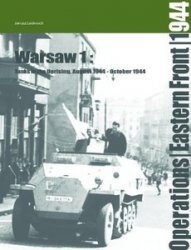In the Korematsu case decided in December 1944, the Supreme Court upheld the relocation of Japanese Americans implemented pursuant to Executive Order 9066 of February 1942. The relocation and incarceration of Japanese Americans constituted the worst violation of civil liberties in the United States during World War II, and the Korematsu decision was overturned in 1984.
Before the Korematsu case, the Supreme Court had in June 1943 unanimously upheld the government’s policy in two cases involving curfew orders. In one of them, Hirabayashi v. United States, the Court said that “residents having ethnic affiliations with an invading enemy may be a greater source of danger than those of different ancestry” and that it was “not for any court to sit in review of the wisdom” of military authorities. Despite the unanimous decision, however, there was concern within the Court. Justice Frank Murphy wrote in a concurring decision in Hirabayashi that the policy had “a melancholy resemblance to the treatment accorded to members of the Jewish race in Germany and in other parts of Europe” and involved “a substantial restriction of the personal liberty of citizens of the United States based upon the accident of race or ancestry.”
The two 1943 cases were decided on narrow grounds that avoided a direct ruling on the forced removal of Japanese Americans. The case that would directly test the relocation policy involved Fred Korematsu, whose lawsuit was championed by the American Civil Liberties Union. As the case worked its way through the judicial system to the Supreme Court, it created tension between the army, which insisted upon the military necessity of the relocations, and the Justice Department, which was convinced that the army’s position was based to an important degree upon exaggerated or false evidence. Such doubts about military necessity might well have produced a majority decision by the Court that the relocation was unconstitutional, and under intense pressure from the army, the Justice Department brief removed a footnote indicating its strong doubts about the army’s report. By a 6-3 margin, the Supreme Court on December 18, 1944, ruled in the Korematsu case (with Justice Hugo Black writing the majority decision) that the relocation policy was sufficiently justified by military necessity to meet constitutional strictures. In a bitter dissent, Justice Murphy called the decision a “legalization of racism.” (Justices Owen Roberts and Robert Jackson also dissented.) On the same day, however, the Court also ruled unanimously in ex parte Endo that while temporary detention in relocation centers was constitutional, the government could not retain loyal American citizens (some two-thirds of the internees were citizens) in the centers.
The relocation policy upheld by the Korematsu decision was criticized and often condemned as unjust and unconstitutional from the beginning, and underwent searching review after the war. In 1948, Congress approved reparations to internees—some $37 million in compensation for the relocation and the estimated $400 million in property losses to Japanese Americans. In 1984, a federal court ruled that “fundamental error,” including the government’s fraudulent use of evidence, had tainted the Korematsu case and overturned the conviction. With other relocation cases pending, Congress in 1988 acknowledged the “fundamental injustice of evacuation, relocation and internment” and offered both apologies for the policy and reparations of $20,000 to living survivors of the internment. In 1998, President Bill Clinton awarded Fred Korematsu the Presidential Medal of Freedom, the nation’s highest civilian honor.
Further reading: Peter H. Irons, Justice at War (New
York: Oxford University Press, 1983);-, ed., Justice
Delayed: The Record of the Japanese American Internment Cases (Middleton, Conn.: Wesleyan University Press, 1989).




 World History
World History









